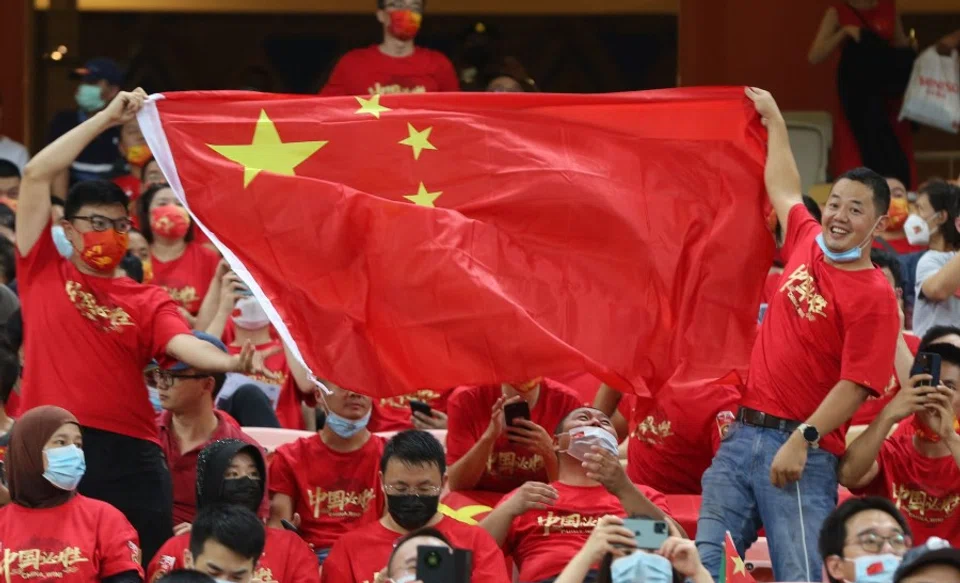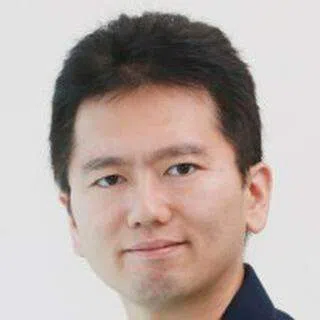War of words: China and the US tussle for speaking rights on democracy
Ahead of the US Summit for Democracy this week to which it is not invited, China has been aggressively taking the floor to explain its own brand of democracy and ensure that it is not isolated from the conversation. It has released a white paper elaborating on China's "whole-process people's democracy" and a report on the state of democracy in the US. Underlying its proactive behaviour is a great anxiety that this is yet another means of containing China. Zaobao correspondents Edwin Ong and Chen Jing examine China's rhetoric on democracy and seek views from the experts.

Ahead of the US's Summit for Democracy, China has time and again been jostling for speaking rights on democracy. Following the release of a white paper titled "China: Democracy That Works" on 4 December, the Chinese authorities released a report called "The State of Democracy in the United States" on 5 December, attacking the US for increasingly deviating from the "essence of democracy and its original design" and seeking to "impose its own political system and values on other nations". The report also asserted that the US interferes in the internal affairs of other countries under the guise of pushing for "democratic transition".
China's white paper on Chinese democracy
US President Joe Biden will be convening the virtual democracy summit this week. A total of 110 countries and regions have been invited to attend, including those in the Asia-Pacific region such as Japan, South Korea, Australia, New Zealand, Taiwan, and so on. However, major powers China and Russia are not invited. Chinese diplomats including Foreign Minister Wang Yi have voiced their opinions on various occasions recently, attacking the US for attempting to seek supremacy under the pretext of democracy, and for creating divisions and opposition.
On 4 December, China released its white paper titled "China: Democracy That Works". At a news conference, replying to a query by Lianhe Zaobao, Xu Lin, vice-minister of the Publicity Department of the Communist Party of China (CPC) Central Committee, said the summit and other moves will be "a joke in the course of democratic development, and are destined to be unpopular".

Xu also added fuel to the fire of competition between China and the US for speaking rights on democracy. He defended China's "whole-process people's democracy", describing it as a "full-chain, comprehensive democracy that covers all bases", a socialist democracy that is "more extensive, more genuine and more effective", which has contributed Chinese wisdom and a Chinese solution to the development of human democracy. In a veiled reference to the US, he said some countries "have bad records in democracy, chaotic domestic governance, but point fingers at others' democracy and make groundless accusations".
Xu further explained the white paper in terms of the values, development and framework of China's democracy. The white paper states that whole-process people's democracy is "a creation of the CPC in leading the people to pursue, develop and realise democracy". Furthermore, it is a "complete system with supporting mechanisms and procedures, and has been fully tested through wide participation". It also "prevents individuals from manipulating the political process to win elections, and leaves no room for politicians to shower promises while campaigning and break them all once elected".
The white paper also hints that US-style democracy is not true democracy, noting that "a good model of democracy should build consensus rather than create social rifts and conflicts, safeguard social equity and justice rather than widen social disparities in favor of vested interests, maintain social order and stability rather than causing chaos and turmoil".

Replying to a question from Lianhe Zaobao, Xu said, "The US touts itself as the leader among democracies and organised and manipulated the so-called democracy summit. Under the guise of democracy, this is in reality a containment and oppression of countries that have a different development model," adding that "these actions make use of the name of democracy, but are the very opposite of what democracy is. They will become a joke in the course of democratic development, and are destined to be unpopular."
Pandemic reveals drawbacks of US-style democracy
Tian Peiyan, deputy head of the CPC Central Committee Policy Research Office, also blasted US-style democracy at the press conference. He said while the US considers itself a "beacon of democracy", the fight against the pandemic has exposed a slew of drawbacks of its democracy. He blamed the high Covid-19 death toll in the US on political disputes and a divided government from the highest to the lowest levels. "Such democracy brings not happiness but disaster to voters."
Tian said that under the US democratic system, politicians are agents of interest groups. "Those politicians can make random promises for the sake of elections, but they seldom fulfill their promises after being elected. Superficially they accept voters' supervision, but in fact as long as they are elected, the voters have no option but to wait for the next election." He said: "Chinese people don't like and don't want such democracy."
In Tian's view, China's full-process people's democracy is more extensive, more genuine and more effective than the US democracy. Party members and leaders at all levels must accept the whole process and all-round supervision of the party and the people, while National People's Congress deputies who are unable to perform their duties in accordance with the law or have violated laws and disciplines, voters or electoral units may cancel or remove their deputies in accordance with the law, without waiting for the election.
Tian also stressed that sticking to CPC leadership is the fundamental guarantee for developing China's full-process people's democracy, adding that Western-style democracy can easily collapse into chaos, and democracy will go in the opposite direction.
"Especially in the face of the US's strategic competitive pressure on China, China is now in a very important and strategically significant tussle for speaking rights." - Professor Zhu Feng, director of the Institute of International Relations, Nanjing University
Values-based diplomacy as a tool
When interviewed by Lianhe Zaobao, Zhu Feng, director of the Institute of International Relations at Nanjing University, said since taking office, the Biden administration has made values-based diplomacy a key move in starting a new Cold War, and an important chip in strategically containing and impacting China.

Zhu said apart from the extreme distaste of the Chinese authorities for values-based diplomacy, the release of the white paper shows its resolve to firmly and comprehensively hit back at the US for its smear campaign against China. "Especially in the face of the US's strategic competitive pressure on China, China is now in a very important and strategically significant tussle for speaking rights."
Pakistan is one of the countries invited by Biden to attend the democracy summit. In a phone conversation with Pakistani Foreign Minister Shah Mehmood Qureshi on 3 December, Chinese State Councilor and Foreign Minister Wang Yi said the US is "seeking to defend its domination in the world in the name of democracy. It is trying to meddle in other countries' internal affairs under the banner of democracy. It is abusing the value of democracy to create division in the world."
Zhu said the democracy summit is not just an important product of values-based diplomacy. More importantly, it is a rallying cry to its allies and partners to build an anti-China alliance. "The democracy summit will only increase the political mistrust between China and the US, and make efforts to stabilise strategic relations more difficult... It will definitely bring fresh obstacles and pressures to China-US relations."
Preempting and defending
The academics Zaobao spoke to assessed that China's bombardment of arguments against Western democratic ideals in the public sphere will continue until the democracy summit ends so that the US will not monopolise the right to define democracy and set new rules on that basis while excluding China. That said, most felt that the war of words between both countries would not reverse the warming up of China-US relations.
On 5 December, the Chinese foreign ministry published on its website the above-mentioned 15,000-word report on the state of American democracy. According to the report, while the development of democracy in the US is "a step forward" in history, democracy in the US has become "alienated and degenerated" over the years and has "increasingly deviated from the essence of democracy and its original design".
Furthermore, the US is "placing too much emphasis on procedural or formal democracy at the expense of substantive democracy and its outcome" and is "always seeking to impose its own brand of democracy on others, use its own values as means to divide the world into different camps, or carry out intervention, subversion and invasion in other countries under the pretext of promoting democracy".
"China must portray a tough stance on this matter. Otherwise, it will face challenges and pressure from the outside world and within the country." - Associate Professor Li Mingjiang of Nanyang Technological University's S. Rajaratnam School of International Studies
Narrative battle between China and the US
The report also refers to the storming of the US Capitol and the mishandling of the Covid-19 pandemic as examples of "messy and chaotic practices of democracy", and notes that the US "incited 'colour revolution' in Eurasia" under the pretext of "promoting democracy", and "remotely controlled the 'Arab Spring' in West Asia and North Africa", which brought about "chaos and disasters to many countries".

Associate Professor Li Mingjiang of Nanyang Technological University's S. Rajaratnam School of International Studies told Zaobao that China's series of actions show that it is concerned about the US's increasing efforts in playing the "diplomatic card" of democracy. He said, "China must portray a tough stance on this matter. Otherwise, it will face challenges and pressure from the outside world and within the country."
Wang Yiwei, director of the Institute of International Affairs at Renmin University of China, told Zaobao that the US hopes to use the democracy summit to formulate new rules and forge new alliances to serve its economic, trade, and political needs for de-sinicisation. If China does not put forth a strong counterattack, it would be isolated and further bullied by the US.
"This way, whether China is advancing its Belt and Road Initiative or engaging in trade activities, it would be boycotted by the US's allies because the US considers China 'undemocratic'." - Professor Wang Yiwei, director of the Institute of International Affairs at Renmin University of China

"The US is trying to bind democracy to issues such as carbon emissions, information security and international relations, and divide the world into either the democratic camp or the autocratic camp," said Wang Yiwei. "This way, whether China is advancing its Belt and Road Initiative or engaging in trade activities, it would be boycotted by the US's allies because the US considers China 'undemocratic'. To avoid this, China needs to wage a narrative battle with the US over democracy and autocracy."
Li predicts that prior to and after the democracy summit, China will continue to take measures to seize the democracy narrative, including through the state media's negative comments on Western democracy, and at academic forums and other activities that defend China's democratic system, and so on.
US-China relations expected not to worsen too much from this rhetoric
He said, "China's voice will have some effect on countries that have not been invited to the democracy summit or those that are under the US's pressure because of ideological differences. For example, countries such as Russia, Cambodia, and Myanmar, as well as those with relatively distant relationships with the US such as Africa and Latin America."

Although the China-US democracy narrative battle will intensify the strategic suspicions of both parties, Li thinks that this war of words is unlikely to completely change the fact that China-US relations are stabilising and that tensions are easing.
Li explained, "After the 'breaking of the ice between the presidents of China and the US at their virtual summit, consultations and exchanges between both parties are expected to increase compared to previous years. Although the US and China are locked in fierce ideological competition, they will still maintain limited cooperation with each other at the working level."




![[Photos] Fact versus fiction: The portrayal of WWII anti-Japanese martyrs in Taiwan](https://cassette.sphdigital.com.sg/image/thinkchina/3494f8bd481870f7c65b881fd21a3fd733f573f23232376e39c532a2c7593cbc)

